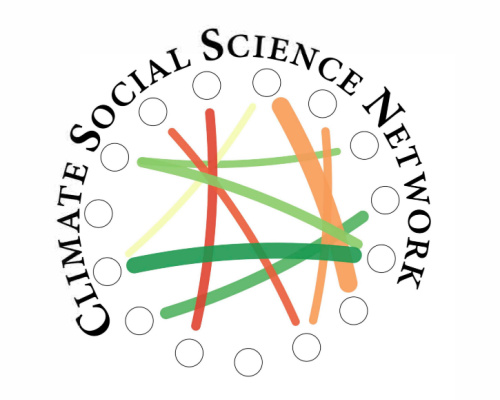FOR IMMEDIATE RELEASE
October 22, 2020
Contact: Stephanie Damassa
+1.608.346.0891
Climate Social Science Network Launched with Hub at Brown University
Global Network Will Produce Research on Climate Change-Related Political Conflict
PROVIDENCE, RI – A new global network of researchers will produce and coordinate groundbreaking research on political conflict around climate change. The Climate Social Science Network (CSSN), established today, will focus on understanding the cultural and institutional dynamics of climate change.
Based at the Institute at Brown for Environment and Society, CSSN will investigate a range of topics including the role of organizations that obstruct climate action, fossil fuel companies’ influence on politics, the role of the media and misinformation campaigns, and other roadblocks to political action on climate change. The network is headquartered at Brown University.
“Research about the organizations blocking and slowing and rolling back the action we know is needed on climate change is starting to pick up speed,” said Timmons Roberts, Executive Director of the CSSN and the Ittleson Professor of Environmental Studies and Sociology at Brown University. “We hope to help put it into overdrive, and assist scholars in making their work sustainable and impactful.”
Director of Research Robert Brulle, Visiting Professor of Environment and Society at Brown added that “Understanding the dynamics of political conflict around climate change can assist in the development of more efficacious strategies to move climate action forward. This research network can make a major contribution to translating academic research into frameworks to guide practical action.”
In addition to Drs. Roberts and Brulle, the network includes over 75 researchers from 15 countries.
“The Climate Social Science Network will be a big help in the fight for climate action,” said U.S. Senator Sheldon Whitehouse of Rhode Island. “We’re up against a big polluting industry with a long record of deception. It will do whatever it can to sow doubt about the science and cover its dirty tracks. That’s why understanding how these groups work and whom they benefit is so important.”
CSSN is expected to release peer-reviewed studies this year on topics such as Suspected Bots in Social Media Discourses on Climate, Fossil Fuel Industry Funding of Climate-Relevant Research at U.S. Universities, The Use of Economic Consultants by the U.S. Petroleum Industry to Shape Climate Change Policy and Discourse, The Global Climate Misinformation Network, U.S. State Level Efforts to Delay Climate Action, and The Corporate Philanthropy of Major Oil Companies 1980 – 2018.
To learn more about the Climate Social Science Network, go to CSSN.org and follow @ClimateSSN on Twitter.
###



